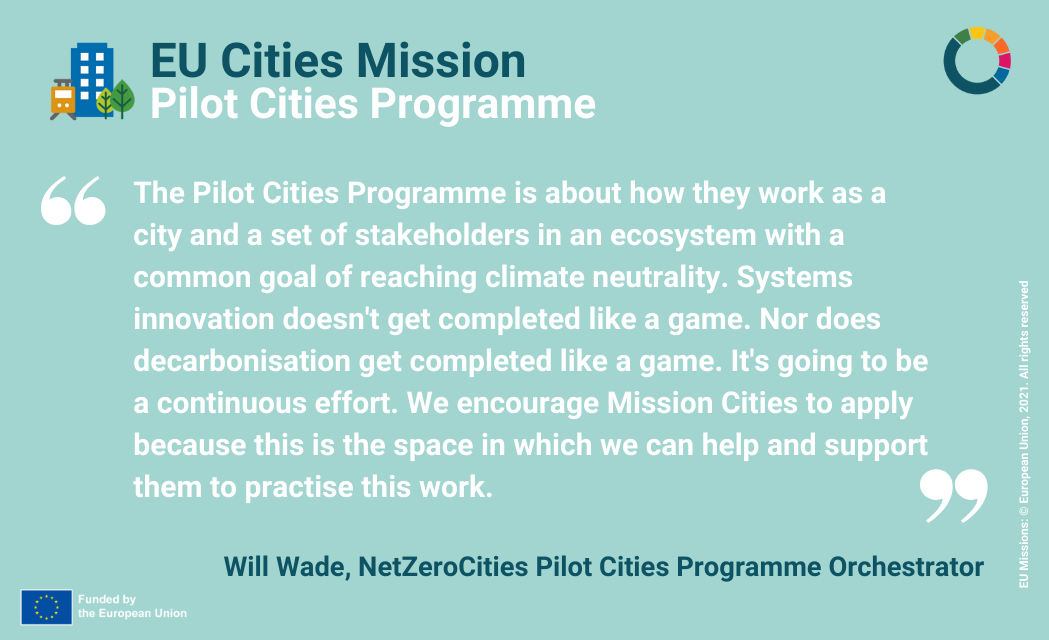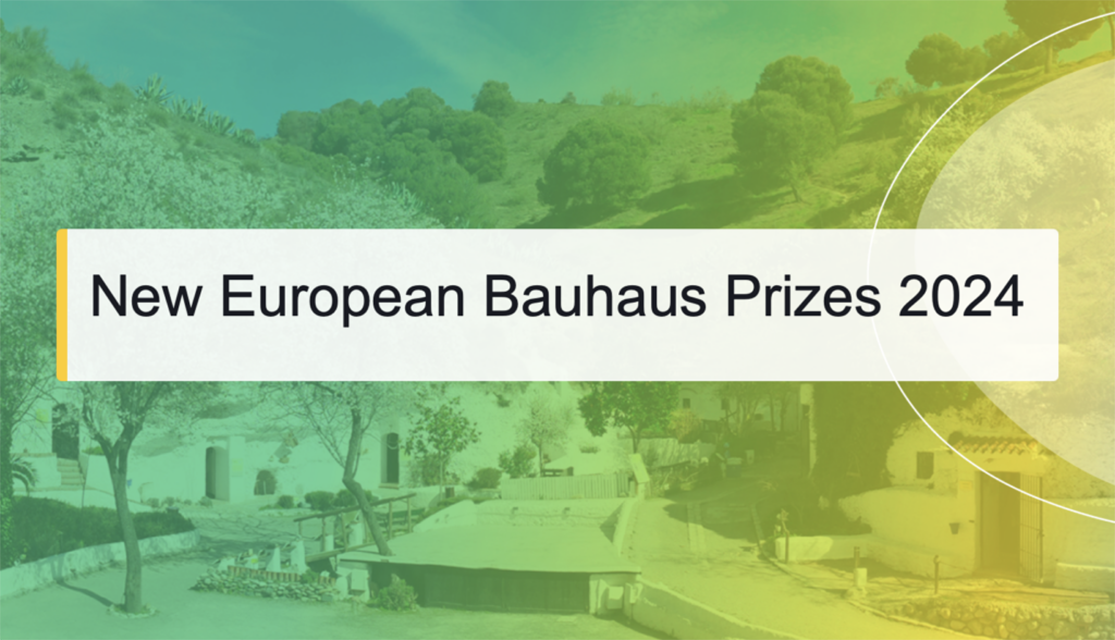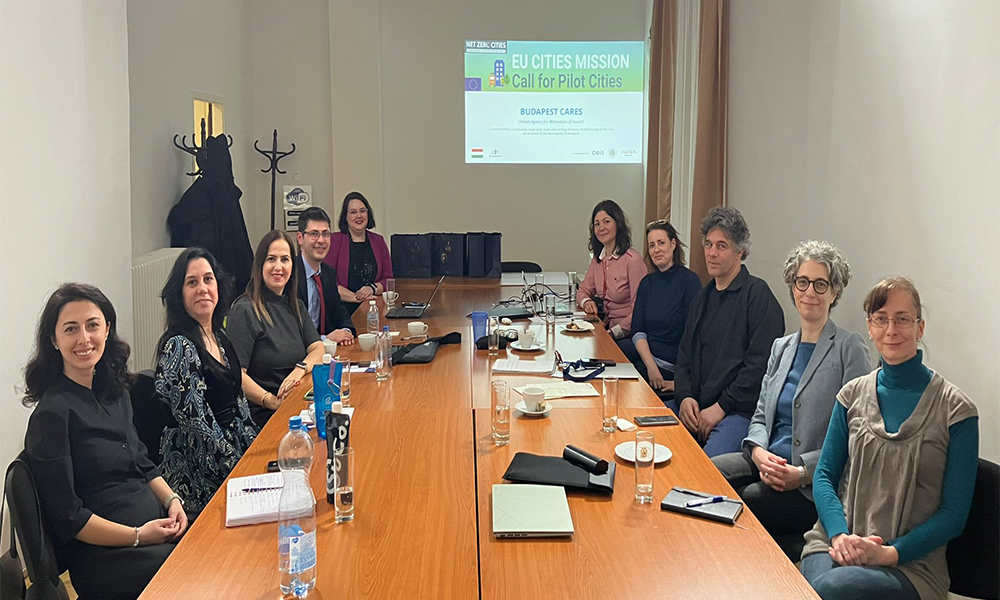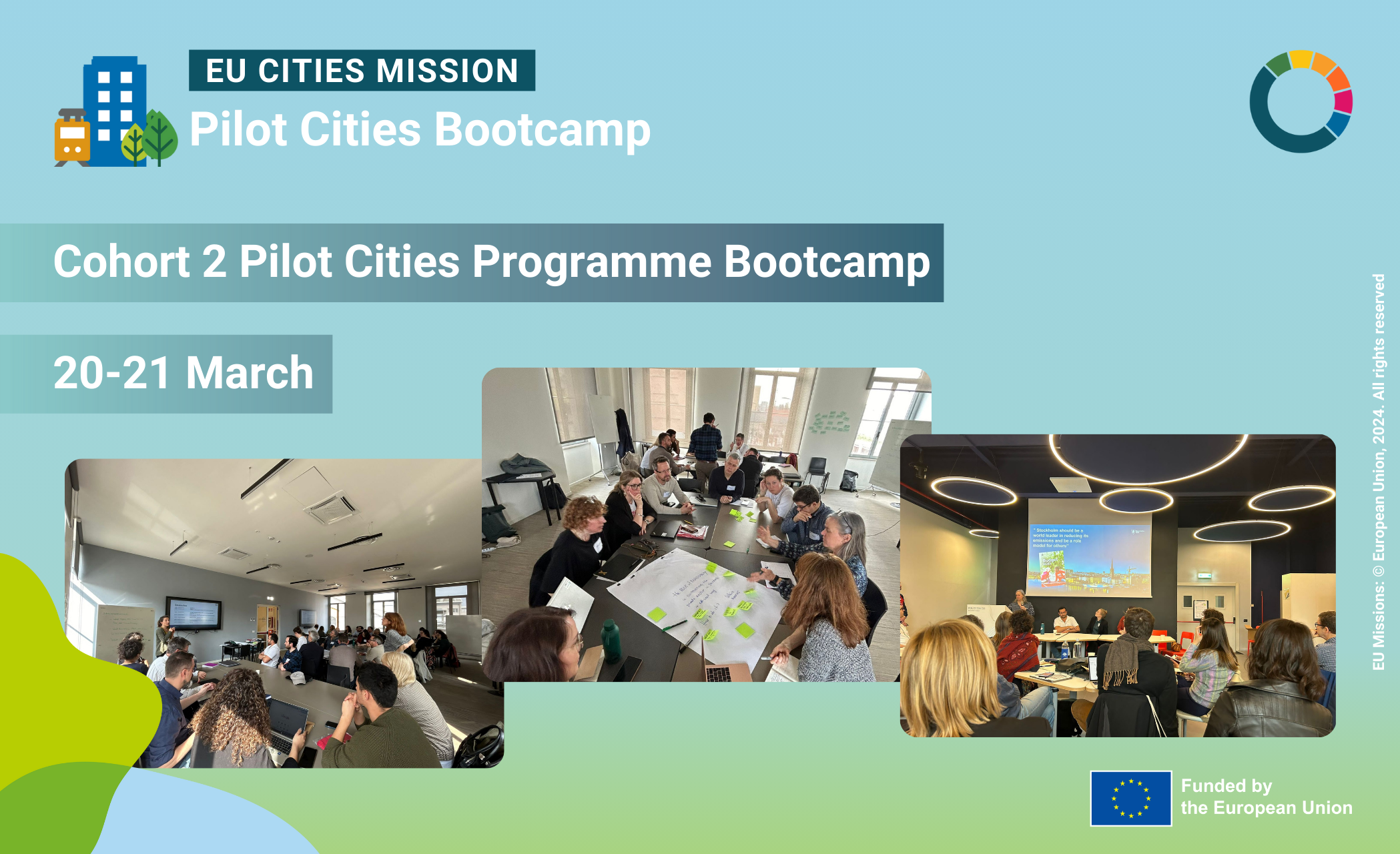Author: Elisa Abrantes
Over 50 European cities are just short of a quarter of the way through their two-year Pilot City Programme experience, and more EU Mission Cities recently applied to be part of the second cohort, to accelerate their efforts to achieve climate neutrality.
Cities that are part of the programme receive an EU grant and support from the NetZeroCities platform over a two-year period to test innovative pathways to climate neutrality, aimed at overcoming entrenched and systemic barriers to change in their context.
The Pilot Cities Programme is the main way in which NetZeroCities provides resources and space for cities participating in the Pilot Cities Programme to take different approaches to innovation and change across multiple domains – combining technological and infrastructural changes, innovations in stakeholder engagement, or building capability and capacity within systems.
The programme is intended to support and accelerate cities’ efforts to overcome barriers to change by enabling them to develop pathways to transformation that are truly innovative and systemic, rather than focusing on specific (and singular or siloed) targets and outcomes. And, in the spirit of being a space in which participating cities can practise on the ground approaches to systems change, the programme provides a deep learning programme in which cities generate key insights about how change is happening, what can be extracted from this and applied more broadly, and in turn build capability and capacity for the work of systemic change across the entire city. In addition, as cities learn what works (and what doesn’t) in their context. This learning and the innovative pathways they are experimenting with can then be scaled and replicated by other cities, thereby maximising the reach and impact of their work, and the wider Pilot Cities Programme.
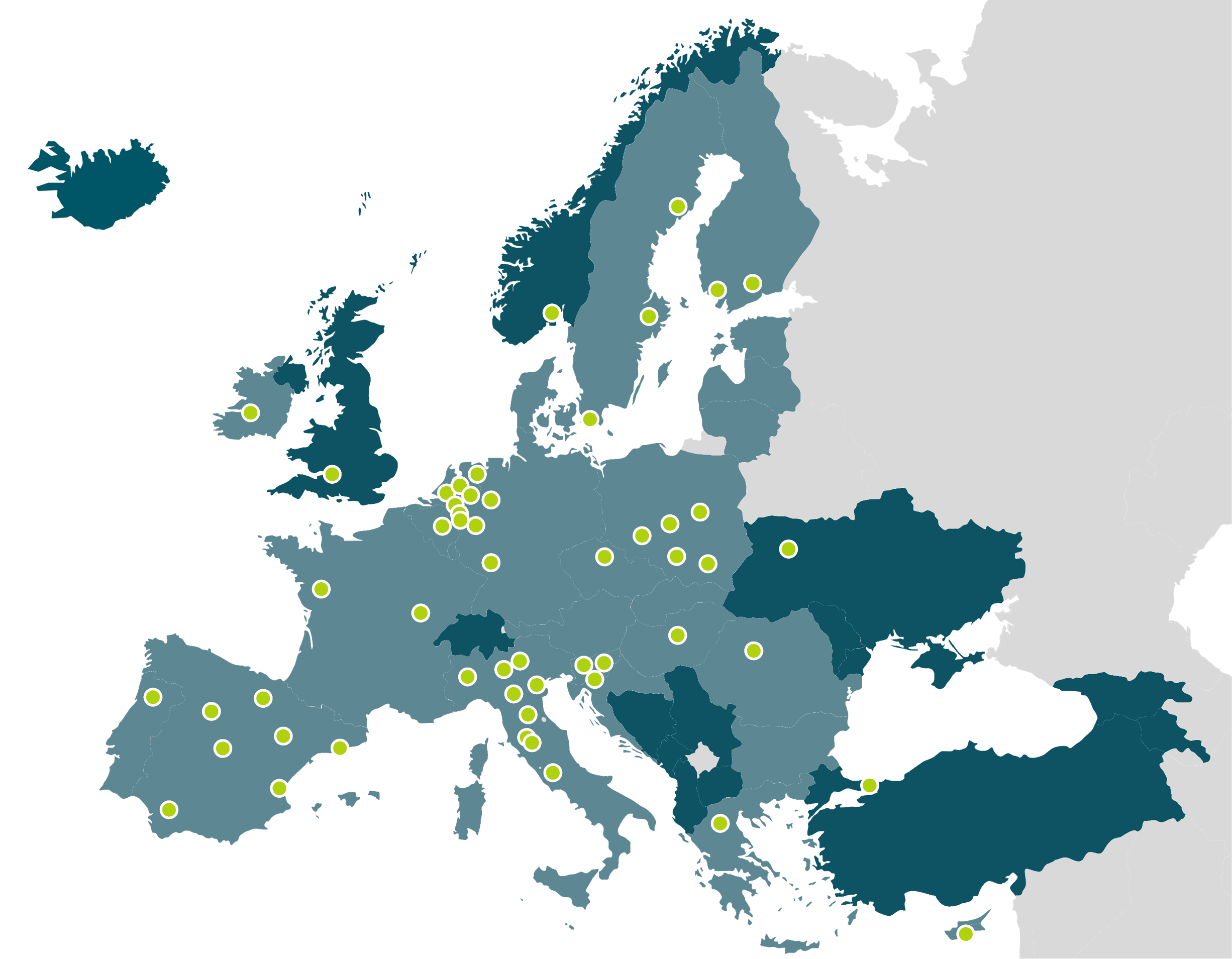
Pilot Cities receive additional, dedicated support during the implementation of their innovative work. The support provided includes capacity building, specialist expert support in the domain of their pilot focus area(s), peer learning opportunities, and a programme of learning and ‘sensemaking’.
The first cohort of 53 cities began their 25 pilot activities in the summer of 2023, and more will enter the programme in the second and third cohorts in 2024. Each cohort goes through the programme together – as a whole group and also in focussed learning clusters – providing a space for exchange and collective learning.
With a range of approaches from testing innovative mechanisms to finance their city’s climate transition to setting up and experimenting with energy communities, Pilot Cities are rolling up their sleeves and stepping outside their ‘business as usual’ approach. And they are doing so not only to develop innovate transition pathways, but also to acquire the right skills, collaborative partnerships, and knowledge to ramp up their transition to climate neutrality by 2030 – the fast-approaching target most of these cities have committed to reaching.
“We are helping cities to tackle systems change head-on, by investing in their efforts to learn and build capabilities while working on leading-edge innovations. This critical effort is essential for Mission Cities to achieve climate neutrality.” – says Thomas Osdoba, Programme Director for NetZeroCities.
The approach taken by Pilot Cities varies based on the unique combination of local needs, priorities and other cultural and contextual nuances. The diversity of approaches emphasises the unique ability each city has to take ownership and influence their own path within the Programme. Galway, for example, will focus on retrofitting private homes in a decarbonisation area, with interventions at three levels: advising citizens, capacity building in the workforce, and engaging decision-making bodies to create more attractive conditions (i.e. cheaper loans) for retrofits. Meanwhile Polish cities are working together to develop retrofitting digital solutions that will be scalable to other cities in Poland and beyond.
Other Pilot Cities, such as Liberec and Guimarães, are setting up energy communities to test out a range of solutions in specific areas, from transport and energy consumption in buildings to improved waste management. The Swedish city of Uppsala is leveraging the Pilot Cities Programme to focus on the local circular economy by improving material flows, especially in the building sector. Part of their plan includes increasing the use of reusable materials in construction and setting up a marketplace for such materials.
Climate neutrality is the goal; the Pilot Cities Programme is about learning how to get there
Through the Pilot Cities Programme, cities will implement their plans in test mode: the Pilot Cities Programme can be thought of as a testing ground where city administrations and their partners and stakeholders tackle complex challenges in a test-learn-and-iterate approach, exploring how their cities work as a complex system, and identifying what works and what doesn’t, in their context, in the process.
Part of the transformative journey entails a deliberate departure from entrenched top-down and fragmented ways of working that tend to prevail at the level of city administrations. This departure marks a strategic shift toward fostering more integrated, cohesive ways of operating within city structures. Another is a climate action and programming approach that is portfolio-based rather than project-based, connecting citizens, stakeholders, local businesses, civil society, and education and research institutions, across multiple interdependent interventions that exploit different levers of change (i.e. data and technology, governance and policy, finance, culture and participation as well as social innovation).

To reflect this, at the point of applying to the programme cities were asked to deeply reflect on what and where their barriers to change are, how well they understand them, and, crucially, which parts of those challenges or systems do they not have good sight of? Where are they getting stuck?
Participating cities are approaching the Pilot Cities Programme from different angles. Many of them are looking at components nested in their larger Climate City Contracts, using the Pilot Cities Programme to identify specific actions that could be more thoroughly explored and ‘piloted’. Other cities are using it to explore different areas of work. For example, a cluster of Dutch cities are testing how local public climate finance can maximise the leverage of private and government sources, by introducing District Investment Platforms in 7 cities.
Coming out of the programme, cities should emerge with a better understanding of how to apply more systemic approaches to change within their city systems – be that in how to involve and communicate with relevant stakeholders or how to affect a particular value chain – and how to test these changes, learn from them, and go again.
“The Pilot Cities Programme is about how they work as a city and a set of stakeholders in an ecosystem with a common goal of reaching climate neutrality. Systems innovation doesn’t get completed like a game. Nor does decarbonisation get completed like a game. It’s going to be a continuous effort. We encourage Mission Cities to apply because this is the space in which we can help and support them to practise this work.” – says Will Wade, NetZeroCities Pilot Cities Programme Orchestrator.
Cities are also thinking about how they will use this experience as a vehicle to reach out to critical external actors, to other stakeholders and to citizens. They are thinking about how to bring all these actors into the process, generate a sense of common ownership in the climate transition, and tangibly raise the quality of life in their city.
What’s next?
Early outcomes of this innovative programme will begin to take shape, as well as early insights, new knowledge and understanding, as the Pilot activities mature and develop over time. Subsequent cohorts will contribute to the growing richness of these experiences, with cities exchanging what they have learnt with their Twin cities.
“The goal of this process is that cities are able to use all of their insights to strategically guide their decision making, guide their investments, and involve a wider audience, be it citizens or communities, but also more importantly the decision makers and politicians who influence those processes they are trying to change as well,” says Nikhil Chaudhary, Strategic Learning Lead in NetZeroCities.
As the two-year programme progresses, cities will increasingly consider the replication and scaling potential of their Pilots.
Their experiences will provide opportunities for other cities to follow suit, replicating or scaling approaches and solutions appropriate to their context. For most cities, this will likely involve fundamentally changing the way they work and how actors collaborate.
Further information:
- Pilot City Programme: https://netzerocities.eu/pilot-cities-programme/
- 1st cohort of Pilot Cities: https://netzerocities.eu/pilot-cities-cohort-1-2022/
- European Commission’s Climate Neutral and Smart Cities Mission
